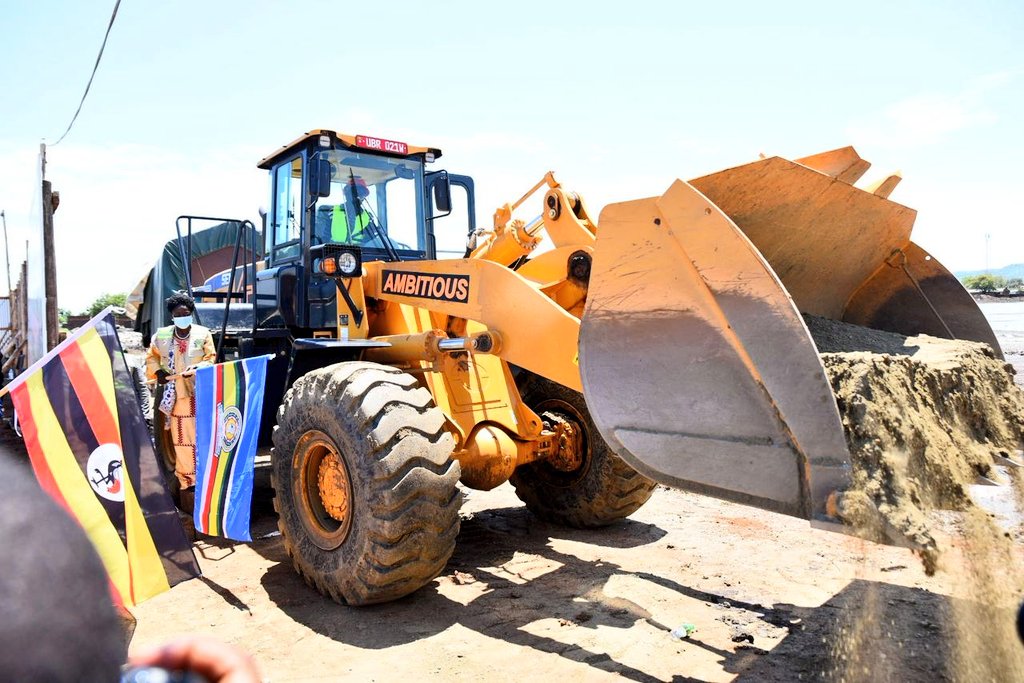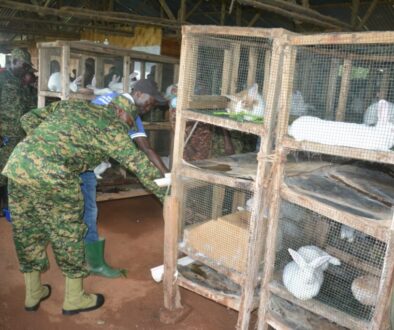Construction of cross-border market at Elegu starts

An excavator at work during the ground breaking for contrction of cross-border market at Elegu Town Council.
By Our reporter
AMURU – The government has launched the construction of its first climate-resilient and gender responsive cross-border market at Elegu Town Council in Amuru district, a strategic border point between Uganda and South Sudan.
The 41 billion shillings’ construction project implemented by TradeMark Africa with funding from DANIDA and the European Union was flagged by the First Deputy Prime Minister Rebecca Alitwala Kadaga, also the Minister for East African Community Affairs, on Wednesday in Elegu Town Council. It aims at mitigating floods currently affecting traders at the makeshift Elegu Market, empowering women, youth, and persons with disabilities and strengthening the Elegu–Nimule trade corridor.

Gen. Wilson Mbasu Mbadi Minister of State for Trade being interviewed during the ground breaking.
Speaking at the launch of the construction works, Kadaga said the market has been designed to contain recurrent floods and climate change impacts caused by the bursting of Unyama river, an annual disaster that has left traders at Elegu market counting losses over the years.
Kadaga noted that the market, once completed, will facilitate cross-border trade between not only Uganda but also other neighbouring countries. Traders can easily sell their goods, while passengers in transit can also purchase the goods.
Some of the government officials and others during the ground breaking.
In a written message read by Kadaga, the Prime Minister Robinah Nabbanja noted that the government remains committed to strengthening the infrastructure, preventing trade bottlenecks and ensuring that the country remains a beacon of regional integration and socio-economic resilience.
“Let us build a market that stands not just as concrete and steel, but as a symbol of transformation. A place where trade strides, where women and persons with disabilities find space and voice, and where communities learn to accommodate and support each other,” said Nabbanja.
Nabbanja, however, called on the traders who will use the facility to own it up to transform their livelihoods and the communities, adding that she is optimistic that once completed, trade at the border will rise beyond 30 percent.



